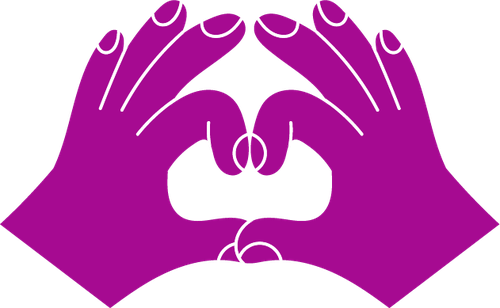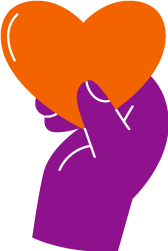Anorexia Nervosa
Anorexia Nervosa
What is Anorexia?
Anorexia (or anorexia nervosa) is a serious mental illness that can cause individuals to limit how much they eat or drink. They may develop “rules” around what they feel they can and cannot eat, as well as things like when and where they’ll eat. Anorexia can affect anyone of any age, gender, ethnicity or background. In some cases, anorexia nervosa can be characterized by low body weight, however you can never tell how unwell someone is by just considering their weight.
As well as limiting how much they eat, they may do lots of exercise, make themselves sick, or misuse laxatives to get rid of food eaten. Some people with anorexia may experience cycles of bingeing (eating large amounts of food at once) and then purging.

Beat services: Here to help
Whether you need 1-2-1 emotional support, want to connect with others or to learn new skills, our range of support services can help.

What symptoms are there?
Weight and shape may be a big factor in someone with anorexia’s sense of self-worth. This can lead to them checking their body regularly and weighing themselves or avoiding scales and mirrors. People with anorexia may have a distorted image of themselves, meaning that they see themselves as bigger than they really are. They may also experience a deep fear of gaining weight.
Sometimes, someone’s symptoms may not exactly match everything a doctor checks for to diagnose anorexia – for example, they may be a weight considered “normal” for their age, sex, and expected development. Depending on the exact symptoms, they might be diagnosed with a type of other specified feeding or eating disorder (OSFED). This is just as serious and can develop both into or from anorexia. People with any eating disorder should get treatment as quickly as possible.
I thought about food and calories all the time. I tried to avoid certain foods and only had ‘safe’ foods which I felt were okay to eat.
Is Anorexia serious?
Anorexia can cause severe physical problems because of the effects of starvation on the body. It can lead to loss of muscle strength and reduced bone strength. People whose periods have previously started may find that they stop which is known as ‘amenorrhoea’. They may also find that their sex drive decreases.
The illness can affect people’s relationship with family and friends, causing them to withdraw; it can also have an impact on their work or education. As with other eating disorders, anorexia can be associated with depression, low self-esteem, anxiety, and other complications or comorbidities. The seriousness of the physical and emotional consequences of the condition may not always be acknowledged or recognised, and those with anorexia may find it difficult to seek help – they may go to great lengths to hide their behaviour from family and friends, or sometimes might not realise that they’re ill.


How can you tell if someone is struggling?
Anorexia in children and young people is similar to that in adults in terms of its psychological characteristics. But children and young people might, in addition to being of low weight, also be smaller in stature than other people their age, and slower to develop physically.
There are a number of signs of anorexia, but someone doesn’t have to have all of them to be suffering. It’s not always obvious that someone has an eating disorder – remember, they are mental illnesses. If you’re at all worried about yourself or someone else, even if only some of the signs on this page are present, it’s always best to seek help as quickly as possible, as this gives the greatest chance of a full recovery. The first step is usually to make an appointment with the GP.

I was pretty desperate and hopeless. It took a long time but I eventually entered recovery and have never looked back.
Some of the more common signs of anorexia nervosa are:
Behavioural signs
If someone is developing anorexia, often changes in behaviour are noticeable before changes to physical appearance. Signs include:
- Saying they have eaten earlier or will eat later, or that they have eaten more than they have
- Not being truthful about how much weight they have lost
- Strict dieting and avoiding food they think is fattening
- Counting the calories in food excessively
- Eating only low-calorie food, or otherwise limiting the type of food they will eat
- Missing meals (fasting)
- Avoiding eating with other people
- Hiding food
- Cutting food into tiny pieces to make it less obvious they have eaten little or to make food easier to swallow
- Eating very slowly
- Taking appetite suppressants, such as slimming or diet pills
- Obsessive and/or rigid behaviour, particularly around food
- Irritability
- Excessive exercising – this might involve exercising when not physically well enough to do so, or feeling guilty or anxious about not exercising
- Vomiting or misusing laxatives (purging)
- Social withdrawal and isolation
- Wearing baggy clothing to hide their body, due to self-consciousness or to make weight loss less noticeable
- Compromise of education and employment plans
Psychological signs
Anorexia is a mental illness, and you might notice changes in the way you or someone you know feels before physical symptoms become obvious. Psychological signs include:
- Fear of fatness or pursuit of thinness
- Excessive focus on body weight
- Distorted perception of body shape or weight – for example, thinking they are much larger than they are
- Underestimating or denying the seriousness of the problem, or believing there isn’t a problem at all, even after diagnosis
- Spending a lot or most of their time thinking about food
- Anxiety, particularly about eating in front of other people
- Low confidence and self-esteem
- Difficulty concentrating
- Perfectionism and setting very high standards for themselves
- Other mental illnesses, such as depression, anxiety, or obsessive-compulsive disorder (OCD)
Physical signs
Starvation affects all the body’s organs, including the brain and muscle tissue. People with anorexia nervosa often experience physical signs of starvation, which may include:
- Weight loss
- Irregular periods, or periods stopping altogether
- Lack of sexual interest
- Difficulty sleeping
- Tiredness
- Feeling dizzy
- Stomach pains
- Constipation
- Bloating
- Feeling cold or have a low body temperature
- Growth of soft, fine hair all over your body (called lanugo)
- Hair loss
- Physical weakness
- Loss of muscle strength
- Effects on hormone levels
- Swelling in their feet, hands or face (known as oedema)
- Low blood pressure
- Poor circulation
Long term effects
Like any eating disorder, anorexia can have long-term physical effects, some of which may be permanent, including:
- Loss of bone density (osteoporosis)
- Erosion of tooth enamel
- Difficulty conceiving, infertility
- Heart problems
- Damage to other organs, such as the kidneys, bowels and liver
- Weakened immune system
- Delayed onset of puberty or stunted growth in children and young teenagers
Most seriously, anorexia can be fatal if not treated in time. However, many physical effects of anorexia are reversible or can be prevented from worsening, and eating disorders are treatable, with full recovery possible.
Treatment for anorexia
Learn about what to expect from treatment.
Overturning bad decisions and understanding good ones
An eating disorder diagnosis helps clinicians decide the best treatment pathway. If you are not sure you have been given the right information or have been denied treatment our Overturning Bad Decisions (and understanding good ones) page can help you understand your options.
Looking for more resources?
We have downloadable resources available on our website.
Order our resources
If you'd like paper copies of our resources, you can order them below.